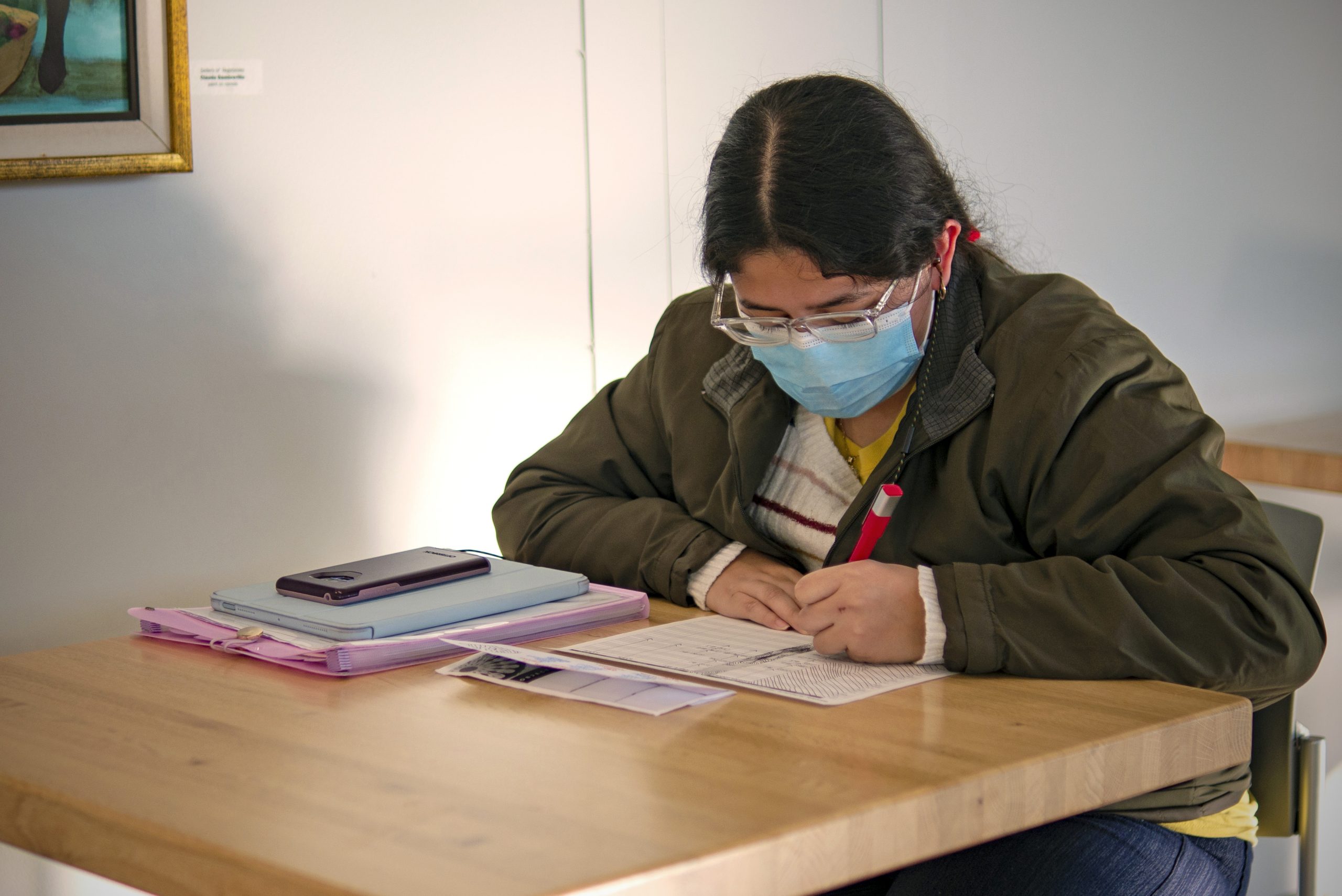The COVID-19 pandemic took a toll on the mental health of college students around the country and at Goshen College.
National surveys show that depression, anxiety, substance use and suicidal thoughts increased in college students during the pandemic’s first year, when many were forced to live in isolation without a clear end in sight.One study published in BMC Psychology found that over 70% of college students reported an increase in anxiety, depression and loneliness during the pandemic.
In addition to the isolation, fear and actual losses felt by many, remote learning was also a cause of stress for students, and affected their focus, memory, productivity and ability to pass classes successfully. For some, this led to more severe mental health symptoms.
“The impact of the pandemic has not been universal in scope or severity,” said Julie Reese, a professor of psychology at Goshen College.
But one factor was experienced by many: the constant presence of the unknown.
“From a general psychological perspective, at least in the western world, uncertainty is much more difficult to cope with than certainty,” Reese said.
Students didn’t know how long restrictions would last, whether they or a loved one would get sick or what disruptions they would experience in their daily lives.
Reese believes that even when the pandemic did not seem to have obvious direct consequences, for many the uncertainty of the pandemic “intensified pre-existing anxieties and depression.”
Aaron Yeakey, a first-year nursing major, said being forced to spend more time alone was one of the biggest challenges he faced.
“As an extroverted person that thrives off of others, I definitely struggled at the beginning of the pandemic,” he said.
But, according to Yeakey, the experience taught him to appreciate solitude.
“Going through isolation and quarantine multiple times, I had to learn to be comfortable with myself and my own thoughts and not require the distraction of other people throughout the day,” Yeakey said.
Jennifer Miller, a campus counselor, said that living through a pandemic has improved many students’ ability to live with uncertainty. It has helped strengthen their coping skills and taught them to prioritize self care.
Miller is hesitant to think of the pandemic in past tense. Even as Goshen College students return to a more normal way of life, new COVID-19 variants are an indication that the pandemic is not yet over.
“I think it is too soon to ‘reflect back’ on the pandemic just yet,” Miller said. “The pandemic is still ongoing and impacts are still being felt.”
Mental health symptoms often respond to a stressor or a situation, and are not necessarily permanent.
“It is definitely not a sign that you are mentally ill or crazy,” Miller explained.
She encourages students to take advantage of the opportunity to get a few free counseling sessions on campus.
“The losses, the grief, the anxiety, the loneliness and the stress are very real and as a student you are so fortunate to have access to this amazing service of counseling!” Miller said.
“It might help you hone in on the positive instead of the negative coping tools you already have in your toolbox.”


